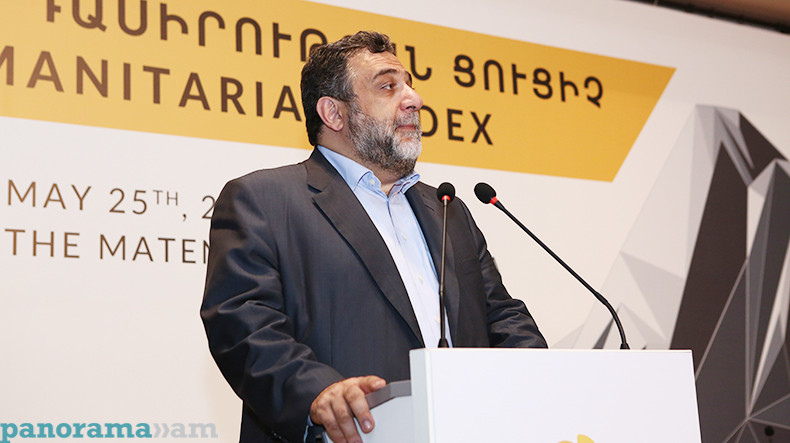
Aurora Humanitarian Index reveals decline in humanitarian support
The 2017 Aurora Humanitarian Index, a new international study released today, revealed support for humanitarian action is on a steep decline and there is an overwhelming lack of confidence in world leaders to address the refugee crisis.
Results from the Index, which surveyed nearly 6,500 people in 12 countries, were compounded by the fact that only nine percent of individuals believe their actions can make a difference in solving the global refugee crisis. For the second year in a row, terrorism is cited as the undisputed top humanitarian issue at 63 percent, followed by the widening gap between the rich and poor, hunger, climate change and forced migration.
According to the release by Aurora Humanitarian Initiative, the annual public opinion survey gauges attitudes towards humanitarian issues worldwide, the effectiveness of humanitarian intervention, and individuals' motivations to intervene on behalf of others. A bright spot in the 2017 Index showed youth outpacing their older counterparts, showing greater openness toward and support of refugees, and willingness to take humanitarian action.
"The sense of apathy towards humanitarianism today highlights an urgent need for engagement in every sector," said Ruben Vardanyan, co-founder of the Aurora Humanitarian Initiative (AHI) and United World College at Dilijan. "However, this negativity is counter-balanced by the incredibly positive attitudes of youth towards humanitarianism and the individual impact on the refugee crisis. All of us need to educate and motivate the young people around the world so they not only understand their capacity for meaningful impact, but are inspired to act upon it."
Key findings from the 2017 Aurora Humanitarian Index commissioned by the AHI, suggest that
only nine percent of respondents feel they can make a difference in solving humanitarian issues.
Although 56 percent of respondents are upset upon hearing the hardship that Syrian refugees are experiencing, 51 percent feel they are unable to make a meaningful impact.
Support for humanitarian action is declining:
Though a majority of respondents agree refugees deserve help, only 37 percent would welcome refugees into their own countries. 42 percent of respondents feel their countries have already taken in too many refugees. Respondents across the 12 countries identified Germany, France and the U.S. as the countries accepting the highest number of refugees.
34 percent of respondents agree that immigrants make their country a better place to live, yet one-third view migrants as a threat to their religious beliefs. 44 percent of respondents feel their country is threatened by ethnic minorities. This figure rises significantly in the UK (56 percent); Kenya (56 percent); Turkey (55 percent); and France (54 percent).
Overall, younger people are more positive and confident in their capacity for impact, with 68 percent of respondents aged 18 to 34 years agreeing that refugees deserve help, and 47 percent wanting to help Syrian refugees.
Younger respondents value diversity, with 29 percent of respondents agreeing it is better for a country if everyone shared customs and traditions.
Of those surveyed, respondents aged 18 to 34 years are the most likely to take action to address the refugee crisis in the next 12 months.
Newsfeed
Videos






























